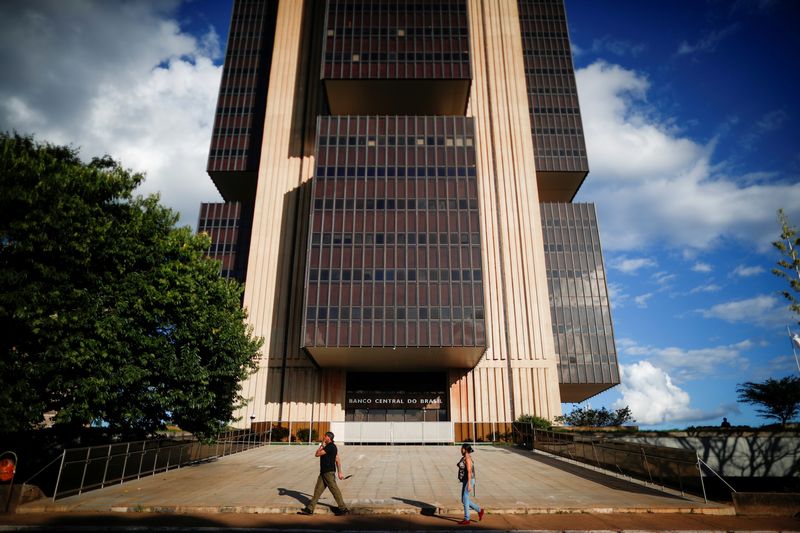BRASILIA (Reuters) - A broad measure of Brazilian consumer and business credit default ratios rose in October to its highest level in almost four years, central bank data showed on Monday, amid high borrowing costs and aggressive monetary tightening.
The default ratio in non-earmarked loans increased to 4.2% from 4.1% in September, the highest since August 2018's 4.22%.
At the same time, bank lending spreads were up to 30.3% from 28.6% the month before.
The central bank recently warned of its growing concern about the effects of lower economic activity on credit risks in the country, pointing to a "relevant" increase in risks on financing families this year.
It comes amid aggressive monetary tightening to battle inflation in Latin America's largest economy, which has lifted rates to 13.75% from a record low 2% in March 2021, although the central bank has since left the rate unchanged at its last two policy meetings.
According to the central bank, individuals' ability to pay has deteriorated even amid better indicators for the economy and the labor market.
Outstanding loans grew 1.0% in October from the month before to 5.215 trillion reais ($964.1 billion), but the 12-month rate slowed to 15.8% from 16.4% in September.

The central bank forecasts 14.2% credit growth this year.
($1 = 5.4092 reais)